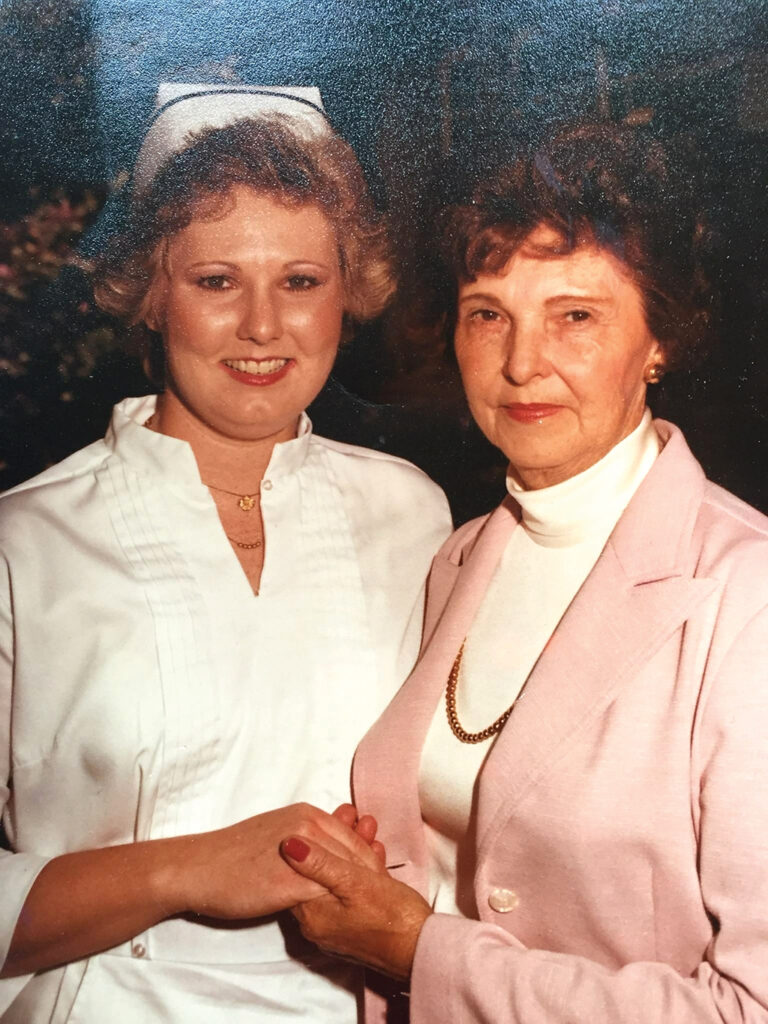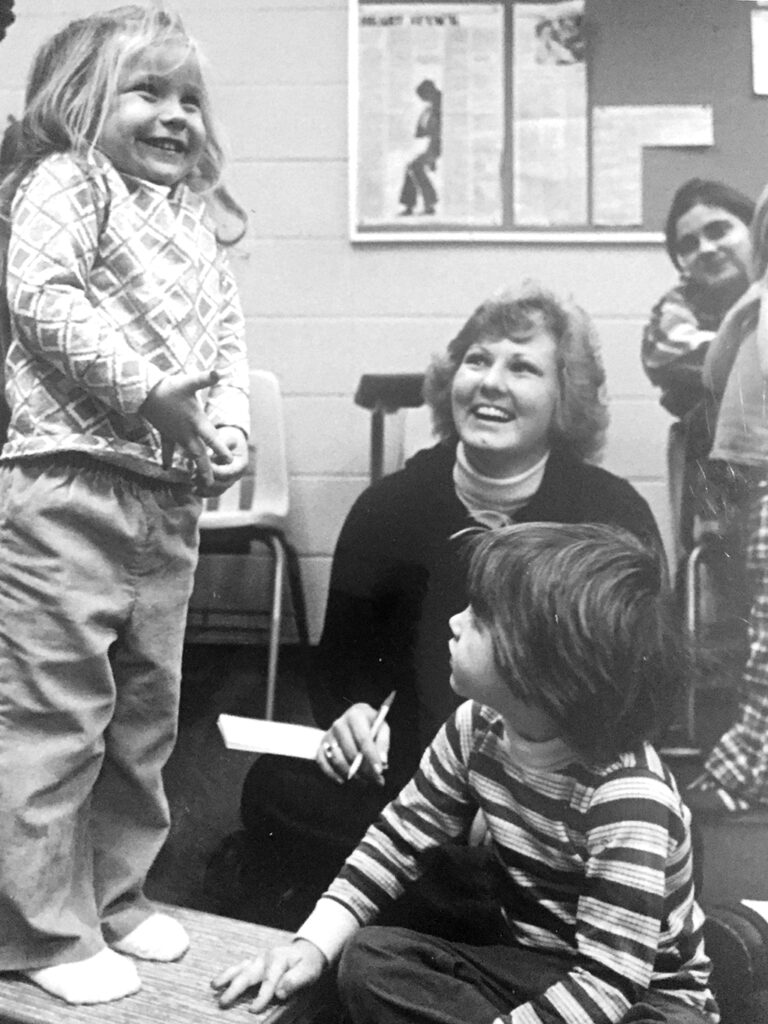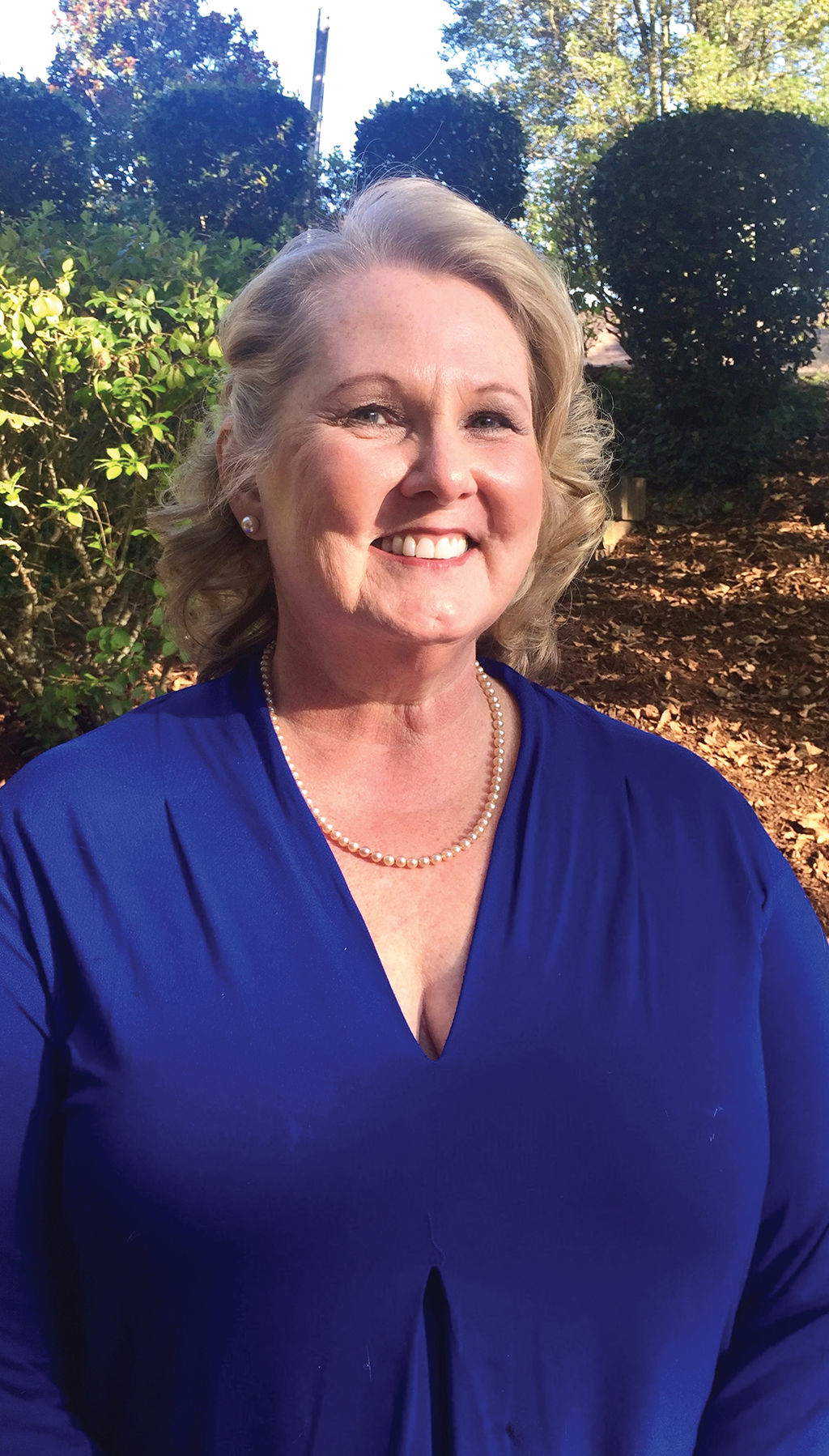When she graduated in 1981, Sherry McCulley-Hall promised nursing program administrator, Dr. Martha Pride, she would take the philosophy and skills Berea had taught her and pass them on to others as well as her community. And for nearly 40 years until her retirement as a registered nurse, that’s exactly what she did.
Originally from nearby Garrard County, Ky., McCulley-Hall grew up in rural North Carolina. Though accepted to a number of colleges in her home state, a family friend and Berea College trustee recommended Berea’s nursing program.
“Upon walking on the campus, things just felt different,” she said, “like this was where I belonged. The minute I started in August of ’77, I knew Berea was the fit for me.”
By her senior year, McCulley-Hall was already applying what she learned in rural areas of Kentucky. She and her classmates did their clinical training in Manchester, Ky., and promoted community health in Harlan County. There, she developed and implemented an educational program for female junior high and high school students emphasizing the importance of safe sexual health. She attributes the success of this class to the support she received from the nursing department.
“Dr. Pride noted several times that I had a calling for working with impoverished and underserved people as an educator and motivator,” she said. “I found there was an intense need for all types of health education in rural Kentucky. I have taken what I used there and used it in North Carolina.”
Teaching became an integral part of McCulley-Hall’s service to the region early on in her career. After graduate school, she accepted a teaching position at Haywood Community College in Clyde, N.C., where she later was named Educator of the Year. McCulley-Hall modeled her teaching style and philosophy on the education she received at Berea College.
She applied Berea’s commitment to asserting the kinship of all people and building community at the Cherokee Indian Reservation in Cherokee, N.C., where she coordinated clinical experiences in areas focusing on mental health issues of underserved populations. There, she incorporated Native American approaches to healing and mental health. Her students participated in sweat lodges as well as other integrative care options used specifically by the Native American population.

As an oncology clinical nurse specialist (CNS), McCulley-Hall continued offering educational services and treatments specifically tailored to the communities she served. Noticing a lack of community education for people diagnosed with cancer, she developed a curriculum for a regional American Cancer Society group with the goal of empowering patients and their familes/support persons with the skills to make informed decisions related to their diagnoses and treatments. This series also implemented a holistic approach to include mental health, nutrition and treating side effects of cancer-related treatments. One example is an outpatient program she created called “Look Good, Feel Better,” which aided chemotherapy patients with makeup tutorials and access to hair pieces.
“It was that giving back that Berea taught me about,” McCulley-Hall said. “Everybody can give back.”
During her time in oncology, McCulley-Hall discovered a love for helping people deal with pain, and for more than 15 years, she helped military veterans navigate their pain at the Charles George Veterans Administration (VA) Medical Center in Asheville, N.C. In her role as a CNS certified in pain management, she, in collaboration with the VA, adapted a pain resource nurse education program, originally developed by the City of Hope Research Hospital Systems. The curriculum, intended for nurses, doctors, physical therapists and mental health providers across North Carolina, was tailored to address the specific needs of veterans. She also developed pain treatment education for veterans themselves.

“My curriculum provided education on self-management, the whole-health approach to pain, weight management, meditation and mindfulness,” she said, noting the importance of movement, often avoided by patients dealing with pain.
McCulley-Hall says the most common cause of pain stems from lower-back and neck issues, much of it a result of military service. Other therapies and methods include aromatherapy, sleep hygiene, acupuncture, tai chi and yoga. Which approach is the most beneficial depends on the person.
“The biggest thing is education,” she said. “So many patients just know they have pain—they don’t understand why life change is necessary.”
In 2015, McCulley-Hall declined an invitation to direct the Charles George VA Medical Center’s integrative pain clinic, preferring to provide case management and education. She retired at the end of 2019.
“My love is watching others grow and learn,” McCulley-Hall said. “I wanted to motivate, empower and support veterans, thus fulfilling my promise to Dr. Pride. Berea taught me—a very sheltered young lady—that there was more to life than just me. In order to change things for the better, you have to become involved. I am so blessed for taking the invitation to visit Berea. Now that I am retired, I will continue to pass along help to my community and to Berea College.”


